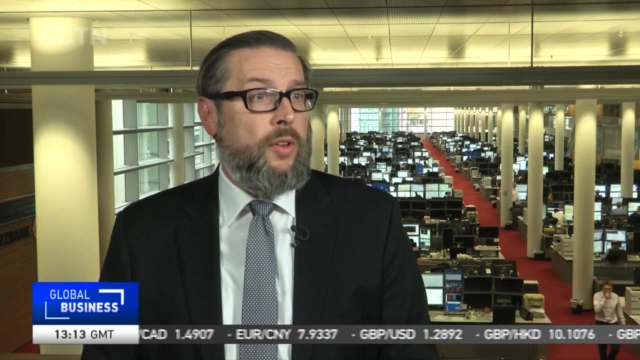
23:21, 25-Oct-2018
US Dollar Dominance: World economies considering a move away from the greenback
Updated
23:09, 28-Oct-2018
03:20

For more than 7 decades, the US dollar has been the world's dominant currency, fueling international transactions and filling central bank reserves around the world. Yet as US policies continue to pressure world economies, more and more countries are looking at pulling away. Natalie Carney has more from Frankfurt.
Today the US dollar makes up 64 percent of all known central bank foreign exchange reserves and more than 85 percent of forex transactions, yet many feel the dollar is overvalued particularly in the face of rising deficits. And countries like Russia, China and Iran are considering a move away from the greenback to protect themselves from US sanctions. Christian Apelt, Currency Strategist at Helaba Bank says the US President's "weaponization" of the dollar is leading to a potential global de-dollarization.
CHRISTIAN APELTCURRENCY STRATEGIST AT HELABA BANK "Some countries are thinking about is the dollar really our, the best currency and then they think different currencies, different countries could have more influence like the Euro or Europe and you see this with the negotiations with Iran. This could be a chance that the dollar is losing and other currencies like the Euro are getting a bit more important."
Head of Research at Germany's Commerzbank says current US political trends could also adversely affect the dollar's position in Europe.
ULLI LEUCHTMANNHEAD OF FX RESEARCH AT COMMERZBANK "We are seeing other conflicts here. Potentially US sanctions against Russia, which are not in the interest of Europeans and therefore we might see some other similar sanction policies of the US in the future. If this process continues, we will have a stronger argument to end the dollars dominance status."
But is there a viable alternative?
NATALIE CARNEYFRANKFURT, GERMANY "According to the International Monetary Fund, global central banks are reluctant to let their US dollars go from their foreign exchange reserves, but they're certainly not dumping their euro denomination assets either."
ULLI LEUCHTMANN HEAD OF FX RESEARCH AT COMMERZBANK "Large parts of global trade or financial transactions in general are happening in Euros. No other currency is coming close to it as a potential competitor to the USD."
Yet the European Union's rejection of Italy's 2019 draft budget has European Central Bank policy makers concerned over the growth of the Eurozone.
CHRISTIAN APELT CURRENCY STRATEGIST AT HELABA BANK "The European financial crisis is not finished, you see these days the problem with Italy. So there are political problems with Europe, they could diminish but they wouldn't disappear in the next years."
Meanwhile, The European Central Bank has added the Chinese Yuan to its basket of reserve currencies, recognizing China's rising financial power, but analysts say the country's financial system still needs development.
HORST LOCHEL, ECONOMICS PROFESSORFRANKFURT SCHOOL OF FINANCE & MANAGEMENT "It's not so much the importance of the Chinese economy, this is already given. It's more the weakness still in the financial markets, bond market, equity market, in the banking system, exchange rate system, all this kind of stuff, which makes it more difficult to develop the Chinese Renminbi on the same level as the USD."
Until systems are modernized, unions are unified, the USD will continue to "Trump" other currencies and provide more political currency to the current US administration. Natalie Carney, CGTN, Frankfurt.

SITEMAP
Copyright © 2018 CGTN. Beijing ICP prepared NO.16065310-3
Copyright © 2018 CGTN. Beijing ICP prepared NO.16065310-3